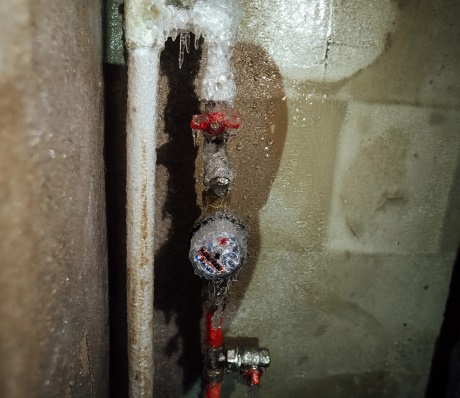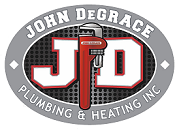When winter arrives in New Jersey, homeowners—especially those living in older homes—face one of the most common seasonal plumbing issues: frozen pipes.
Once temperatures drop below freezing, the water inside your pipes can freeze, causing them to expand, crack, or burst. The result can be thousands of dollars in emergency plumbing and water damage costs.
But here’s the good news — with a few preventive steps, you can protect your home’s plumbing system and avoid the stress of frozen or burst pipes this winter.
Why Older New Jersey Homes Are at Higher Risk
New Jersey is known for its charming older homes, but many were built long before modern insulation standards were established. That means:

- Pipes often run through uninsulated walls, crawl spaces, or basements.
- Outdoor faucets and exposed plumbing may not have freeze protection.
- Older homes may have galvanized or copper pipes, which conduct cold more easily.
If you live in a classic colonial or pre-war house in North Arlington, Bergen County, or Essex, your plumbing system may be more susceptible to damage during cold snaps.
Understanding Why Pipes Freeze
When temperatures fall below freezing at 32°F (0°C), the water in your pipes can start to freeze.
As the ice expands, it creates pressure inside the pipe—eventually causing it to burst at its weakest point.
This often happens:
- Overnight, when heating is turned down
- During extended cold spells
- In unheated basements, attics, garages, and exterior walls
Even a minor crack can release gallons of water in minutes—turning a problem into a plumbing disaster.
Insulate Your Pipes Properly

Start by identifying the most vulnerable sections of your plumbing system:
- Pipes in unheated areas (basements, crawlspaces, garages)
- Pipes near exterior walls or attics
- Outdoor spigots and hose connections
Then, wrap these pipes with foam insulation sleeves, fiberglass pipe wrap, or heat tape.
These inexpensive materials provide a thermal barrier, which can dramatically reduce the risk of freezing.
Pro Tip: Focus on pipes located near drafty areas — sealing gaps with spray foam or caulk will keep cold air from reaching them.
Keep a Consistent Indoor Temperature
Lowering your thermostat at night may save a little on your energy bill, but it could cost you a lot if your pipes freeze.
Keep your home’s temperature above 55°F (13°C), even when you’re away.
- Open the cabinet doors under the sinks to allow warm air to circulate.
- Keep garage doors closed, especially if water supply lines run through them.
- Use a smart thermostat to maintain stable heat during cold spells.
Let Faucets Drip During Extreme Cold
When temperatures are forecasted to drop below 20°F (-6°C), allow a slight trickle of water to run from faucets connected to exposed pipes.
This slow movement of water helps relieve pressure and prevents ice blockages.
Even a small drip can make a big difference in preventing frozen pipes in winter.
Disconnect and Drain Outdoor Hoses
Leaving hoses attached can trap water inside outdoor faucets and lines — leading to frozen hose bibs or even burst spigots.
Before the first freeze:
- Disconnect all garden hoses.
- Drain outdoor spigots.
- If possible, shut off and drain the interior valve that feeds outdoor faucets.
Installing frost-proof hose bibs is another smart upgrade, especially for older homes in New Jersey.
Seal and Insulate Crawlspaces & Basements
Cold air sneaking into crawlspaces is one of the leading causes of frozen water pipes in older houses.
Seal foundation vents, cracks, and gaps that allow cold air to enter your home.
If your basement or crawlspace is poorly insulated, consider:
- Adding fiberglass batts or spray foam insulation to the exposed areas
- Installing insulated skirting
- Using pipe heating cables for vulnerable lines
These improvements not only protect pipes but also reduce heating costs.
Know How to Thaw Frozen Pipes Safely
If you turn on a faucet and only a trickle comes out, you may already have a frozen pipe.
Here’s what to do:
- Keep the faucet open (this relieves pressure).
- Use a hair dryer or space heater to warm the frozen section gently.
- Never use an open flame — it’s a serious fire hazard.
If you can’t locate or reach the frozen section, it’s time to call a licensed plumber immediately.
Schedule a Professional Plumbing Inspection
Preventive maintenance is the best defense against frozen pipes — and that’s where a local expert can help.
A licensed New Jersey plumber can:
- Inspect insulation and pipe placement
- Identify hidden vulnerabilities
- Upgrade outdated materials
- Install freeze protection devices
If you live in an older in North Arlington, Essex, Kearny, or the surrounding area. Scheduling a winter plumbing inspection before the cold weather sets in can save you from an emergency later.
Need Help Preventing Frozen Pipes in Your NJ Home?
At DeGrace Plumbing, we specialize in winterizing plumbing systems for older homes across New Jersey.
Our experienced team can:
- Insulate exposed pipes
- Repair or replace damaged sections
- Install frost-proof spigots and heat cables
- Conduct complete home inspections for freeze prevention
We know every home is different — that’s why we provide customized solutions to keep your water flowing safely all winter long.
Call us today or schedule an appointment online to prepare your home for the next freeze.









